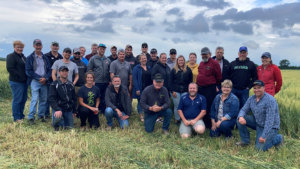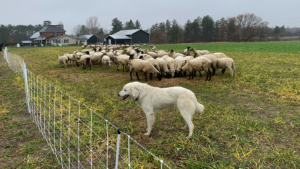Selecting an executor
CONVERSATIONS WITH BUSINESS EXPERTS

(J.M.) WHAT MAKES A GOOD EXECUTOR?
(J.K.) Selecting an executor or co-executors to manage your estate requires serious consideration. The ideal executor should be detail-oriented, financially literate, possess good relationship and communications skills, have the capabilities to dispose of all estate assets, and above all, be comfortable dealing with lawyers, accountants and the Canada Revenue Agency. To avoid unnecessary complications, the chosen candidate should also be a Canadian resident and ideally reside in the same province as the estate.
WHAT ARE THE ROLES AND RESPONSIBILITIES OF AN ESTATE EXECUTOR?
An executor is a person approved by Ontario courts to administer the estate. Any executor’s role will be time-consuming. At a minimum, an executor is responsible for applying for probate, paying probate tax (from the estate), making funeral arrangements, and following the exact instructions set out in the will.
The role also includes filing the terminal return, an estate tax return for each year the estate is open, and any tax returns in arrears. When it comes to physically cleaning up the estate, the executor is responsible for dealing with all estate assets as the will directs. In the case of a farm estate, this would extend to everything on the farm, including livestock, equipment, shares in a corporation, and land. If instructions for liquidating and disposing of specific estate assets are detailed in the will, the executor must follow these to the letter.
Executors are eligible for up to five per cent of the estate assets as taxable compensation. They must be able to account for their time related to the execution of estate administration to justify compensation. Beneficiaries of the estate must approve any compensation proposal, which can cause problems.
To learn more about the roles and responsibilities of an estate executor, this handy checklist outlines everything required for Ontario estate administration: www.jimkibble.ca/Executor-Checklist.
DOES AN EXECUTOR HAVE TO BE A FAMILY MEMBER?
No. It is easy to assume someone close to you or your farm business would make the best choice as executor, but that is not always the right choice. I often ask my clients why they would ‘hire’ their children as amateur estate executors when they could hire an experienced trust company as a neutral third-party executor and pay them 3.75 per cent or sometimes less.
Like it or not, your children may not have the qualities and time required to manage your estate, especially if there are family dynamics, existing relationship problems or conflicts of interest. For example, if you assign multiple children as co-executors and one is invested in and actively farming the family farm that is part of your estate, there could be a conflict of interest for everyone. The active farming child needs to continue to prioritize regular farm operations, and if saddled with the job of executor, will they have the time to balance everything? And when it comes to administering the estate, they have to follow the will, but what if areas arise that need interpretation? Their decisions could be perceived as personal interests in the farm versus the best interest of all parties (remaining siblings). This could be especially challenging if the farmland or farm assets need to be sold to settle the estate.
Co-executors are required to participate in all decisions of the estate and agree on all decisions. So, if you have multiple children as co-executors, they all need the time to participate in appointments with lawyers, accountants, realtors, etc. Even if siblings have a good relationship, administering an estate can cause disagreements or hard feelings. Think carefully before you sign your kids up for such a daunting task. Co-executor appointments are often troublesome and inefficient.
ANY TIPS FOR SELECTING THE RIGHT EXECUTOR FOR A FARM BUSINESS?
Appointing a trust company as an executor or co-executor is an excellent option, especially for farmers. A trust company is independent, manages everything and provides subject matter experts with the required time and skill set. If you are really concerned about the proper management of your farm estate, you can always name a child, multiple children, or any other trusted person as advisors to the trust company. This means your executor advisors will still be involved, and the trust company can reach out to them for opinions on important decisions.
At the end of the day, the trust company will make the final decisions in the overall best interest of your estate. This can be especially helpful if emotional decisions have to be made, like if land is required to be sold to cover capital gains tax. A trust company can tap into the named advisors to determine what parcel of land makes the most sense to sell. •




















